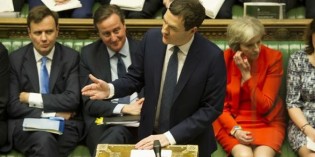Elections and electoral systems

Deadlines, delegate divisions and demographics helped determine the New York presidential primary result
Yesterday the Empire State held its presidential primary contest for the Republican and Democratic parties, with local billionaire Donald Trump and the state’s former US Senator Hillary Clinton winning the most delegates in the respective GOP and Democratic contests. Susan Orr writes that while in previous years, party nominations have been sewn up by this time; […]

Can we really not predict who will vote for Brexit, and where?
In a recent Guardian article, Simon Jenkins suggested that voter decisions regarding the EU referendum will be made on the basis of gut instinct alone, and that personal characteristics and previous party support provide no guide. Using a new modelling strategy applied to a large body of YouGov opinion poll data, Ron Johnston, Kelvyn Jones and David Manley address Jenkins’ claim, and find it wanting. The […]

‘Citizens’ Assemblies’ show that we can do politics differently in the UK
Over the past twelve months the Democracy Matters research team, consisting of academics and campaigners, has been conducting a project on the use of citizens’ assemblies to explore complex elements of constitutional policymaking in the United Kingdom. Here, one of those campaigners, Katie Ghose, discusses the findings of the project and to act upon them. Similar […]

What do the latest polls tell us about the elections in Northern Ireland, Scotland and Wales?
Dr Kenneth Bunker considers the polls that have been fielded in Northern Ireland, Scotland and Wales and what they tell us about the upcoming elections. He writes that while it is difficult to predict what will happen in Northern Ireland, it looks like the SNP and Labour respectively are heading for convincing wins in Scotland and […]

When assessing electoral systems we should consider the degree of personalisation as well as proportionality
A new book by Alan Renwick and Jean-Benoit Pilet examines the ‘personalisation’ of electoral systems. In this post, Alan Renwick outlines what such personalisation is, what patterns of personalisation the book identifies across European democracies, and what all of this means for the future of electoral reform in the UK. He argues that the importance […]

Watching from the sidelines: Wales and Brexit
From a Welsh perspective there’s a sense of having been watching the EU referendum from the sidelines until now. But now campaigning for both the Assembly and referendum votes have launched in earnest, the confusion of concerns and agendas will be hard to escape, writes Jo Hunt. Similar PostsHidden dragon: why is Wales ignored in London and […]

The EU doesn’t weaken UK parliamentary democracy as much as Leavers would have you believe
For many advocates of a Brexit, the principle of ‘returning powers to Westminster’ is sacrosanct. They point out that parliamentary debate subjects legislation to proper domestic scrutiny in a way that is impossible in Brussels and Strasbourg. Yet, argues Thomas Winzen, Britain’s opt-outs and the considerable parliamentary time already devoted to EU-related questions suggest that the Commons […]

Ireland demonstrates that you can have both proportional representation and a constituency link
Ireland just held a General Election using an electoral system which, unlike the UK’s, has a proportional element. Here, Chris Terry argues that the Irish election provided strong evidence that candidate-centred (rather than list-centred) proportional representation using the Single Transferable Vote, and localised politics with a constituency link, can go hand-in-hand. Similar PostsLocal elections: diverse […]

England’s 2016 local elections: an indicator of the national political picture?
England goes to the polls on 5 May to vote in a variety of elections. Tony Travers and Martin Rogers highlight a number of key contests to analyse how local elections can affect local services, and also help to reveal the national political picture. Similar PostsEuropean elections 2019: what will happen in Scotland?Scottish Parliament election […]

The UK scores worst in electoral integrity in Western Europe. Here’s why:
The UK performs poorly when it comes to issues of electoral integrity, lagging behind European neighbours but does particularly poorly when compared with Scandinavia – which as is the case in many fields outperforms Britain. Here, Pippa Norris looks at the reasons why, pointing to voter registration procedures, electoral laws, media coverage, constituency boundaries, and the […]


 Democratic Audit's core funding is provided by the Joseph Rowntree Charitable Trust. Additional funding is provided by the London School of Economics.
Democratic Audit's core funding is provided by the Joseph Rowntree Charitable Trust. Additional funding is provided by the London School of Economics.